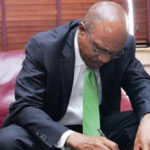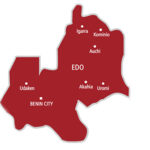A Federal High Court in Abuja has dismissed a suit filed by seven senior advocates of Nigeria against National Judicial Council (NJC) and others over alleged unlawful appointment of judges in Kogi.
Justice James Omotosho, in a judgment, held that the plaintiffs lacked locus standi to institute the action and that the suit itself lacked merit.
The seven aggrieved lawyers, who also hail from Kogi are Yunus Usman, SAN; Jibrin Okutepa, SAN; Patrick Okolo, SAN; Abdullahi Haruna, SAN; Reuben Atabo, SAN; Shaibu Aruwa, SAN and Johnson Usman, SAN.
The plaintiffs, in the originating summons marked: FHC/ABJ/CS/05/2024, sued the NJC, Kogi State Judicial Service Commission (KSJSC), Governor of Kogi and Attorney-General (A-G) and Commissioner for Justice in the state as 1st to 4th defendants respectively.
Hatred for Nigeria Police affecting security – PCRC
Bandit kingpins, 12 others killed in faceoff with rival groups in Zamfara
They sought a mandatory order restraining the defendants from appointing new judicial officers until there is strict compliance with the laws.
In the originating summons dated Jan. 4 but filed Jan. 8, they sought a declaration that the selected candidates for onward transmission to NJC for appointment as judges was not “totally based on merits, competence, sound knowledge of the law, professional expertise and skill, seniority, fairness, equity and equality.”
They argued that the same was marred by political and ethnic influence contrary to the provisions of Rule 3 (6)(i)-(iv) and Rule 4(4)(a) of the NJC Guidelines and Procedural Rules for the Appointment of Judicial Officers of all superior Courts of Records in Nigeria, 2014 and Section 153 of the 1999 Constitution (as amended).
They also alleged that the KSJS was doing the bidding of the governor.
The NJC, in its counter affidavit, urged the court to strike out the suit for want of jurisdiction.
The application was based on the grounds that the suit did not disclose a course of action against the NJC and that the plaintiffs lacked locus standi to file the matter
The 2nd to 4th, in their counter affidavit and a preliminary objection, prayed the court to dismiss the suit.
It would be recalled that the chief judge of the state, in a letter to the Lokoja Branch of Nigerian Bar Association (NBA), shortlisted some judicial officers to be appointed into the state’s High Court, Sharia Court of Appeal and Customary Court of Appeal.
NAN reports that the NJC had suspended the process of the appointment of judges and kadis into the state’s judiciary, saying the development was to maintain a fair and just judicial system following a letter by the seven senior lawyers intimating it on a suit instituted against the appointment.
Delivering the judgment, Justice Omotosho noted that though the plaintiffs brought the suit on their own behalf and the marginalised people of Okun origin and Ibaji Local Government Area (LGA) of Kogi, he said: “interestingly, none of the plaintiffs were in consideration for appointment as Judicial officers.”
“In fact, they are senior legal practitioners who are uninterested in becoming judges in Kogi State.
“In fact it has not shown that the acts of the defendants injured the interests of any of the plaintiffs in any way.
“They never participated in the recruitment process neither were they appointed by the marginalised people of Okun origin and Ibaji LGA to fight their cause for them if any,” he said
He said while the court was aware that the courts had expanded the realms of locus standi in some cases to include public interest litigation, there are still limits to it.
“For instance, Fundamental Rights Enforcement suits under the Fundamental Rights (Enforcement Procedure) Rules have expanded locus standi to even non-governmental organisations to bring action on behalf of a person whose rights have been infringed.
“This suit as far as this court knows is not a fundamental rights suit.
“There must be some form of link between the actions of the defendants and the rights of the plaintiffs instituting an action.
“Without any such link, it amounts to an academic suit which in the opinion of the court has no basis,” he said.
The judge, who held that the plaintiffs had no peculiar rights to protect in the suit, said it was plainly obvious that the suit was speculative without any substance.
“This court will not be used to answer any academic or hypothetical question which does not touch on real or threatened breach of rights.
“The plaintiffs cannot arrogate to themselves the powers they lack.
“The plaintiffs, even though are indigenes of Kogi State, cannot take the place of the people of Okun origin and Ibaji LGA, as they are the ones who have supposedly suffered the said injury.
“Therefore, this suit is bound to be dismissed for lack of locus standi of the plaintiffs,” he said.
Justice Omotosho further held that assuming without conceding that the plaintiffs had locus standi, he wondered if instituting the action was the right course of action.
“The opinion of this court on this issue stems from the fact that the plaintiffs are ably represented in the 1st defendant (NJC) and in fact, are deemed to be members of the 1st defendant through their representatives in the body,” he said.
He said Section 20 to the Third Schedule of the Constitution 1999 (as amended) provides that five members of the NBA who have been qualified to practise for a period of not less than 15 years and at least, one of whom must be a senior advocate, are members of NJC.
“It is crystal clear from the above composition of the 1st defendant that the plaintiffs, who are members of the Nigerian Bar Association by virtue of the Legal Practitioners Act, are represented in the body.
“The plaintiffs ought to have exhausted the avenue of going through their representatives in the 1st defendant before it can ripen into a suit before this court if they have locus standi at all, having assumed being members of the 1st defendant by representation.
“This is the essence of the doctrine of ripeness and exhaustion,” he declared.
Besides, the judge said he also took judicial notice of the fact that NBA president is a member of the appointment committee of the NJC and participates in interviewing candidates for the bench.
According to him, the intention and purpose of this is to bring all the complaints of the different branches of NBA to the notice of NJC through the president.
He said similarly, the judicial service commissions of states also have representation of NBA as part of the members.
“The appointment of qualified persons to the bench of the High Court of Kogi State is done on the recommendation of NJC.
“And where the persons fulfill all the requirements of NJC, their names are sent to the governor for appointment.
“The recommendation of the NJC is upon the advice by the Kogi State Judicial Service Committee,” he said
The judge said that based on Section 158 (1) of the 1999 Constitution, NJC cannot be subject to the direction or control of any other authority or person.
According to him, the import of the above provision is that the 1st defendant has unfettered discretion and powers in the recommendation of persons to be appointed as judges of High Court, Kadis of Sharia Court of Appeal and judges of Customary Court of Appeal.
“Thus this court cannot interfere with such discretion as this provision serve as some form of ouster clause for which the court lacks the powers to look into.
“Thus allegations of bias made against the defendants holds no water in the light of the facts put forward by the defendants.
“This suit has no legs to stand on and will accordingly be dismissed,” he said.
Justice Omotosho equally held that though the plaintiffs alleged that most of the courtrooms of the High Court of Kogi had been neglected and were in a state of disrepair, he said that Okutepa, 2nd plaintiff in the suit, during oral examination as 1st prosection witness, admitted that he was not the maker of the video evidence or the photographs.
“That it was made by someone else and they (plaintiffs) simply downloaded the video and photographs and attached same as exhibits in the further affidavit,” he said.
According to Justice Omotosho, the general principle of tendering a document before a court is that such document must be tendered by the maker of the said document.
“This is to allow the adverse party the opportunity to cross examine the maker,” he added.
He said the two exceptions to the principle are if the maker is dead or the maker can only be procured by involving the party in so much expenses that could be outrageous in the circumstances of the case.
“From the above holding, it is clear that where a document is tendered which is not tendered by the maker, it loses its probative value and it is deemed as a mere paper.
“The Video CD and the photographs even though frontloaded by the plaintiffs are still liable to be expunged by the Court for being hearsay evidence.
“The said documents having not been tendered in evidence by the maker of the documents are hereby expunged from evidence.
“Upon the expunging of the said documents, there is nothing to show that the court rooms of the High Court of Kogi State is in state of disrepair as the reliefs claims are bare without any credible evidence.
“Consequently, relief 5 fails for lack of proof. In final analysis, the plaintiffs lack locus standi to institute this action.
“Assuming it has requisite locus standi, the suit lacks merit and it is hereby dismissed,” the judge declared.(NAN)

 Join Daily Trust WhatsApp Community For Quick Access To News and Happenings Around You.
Join Daily Trust WhatsApp Community For Quick Access To News and Happenings Around You.


